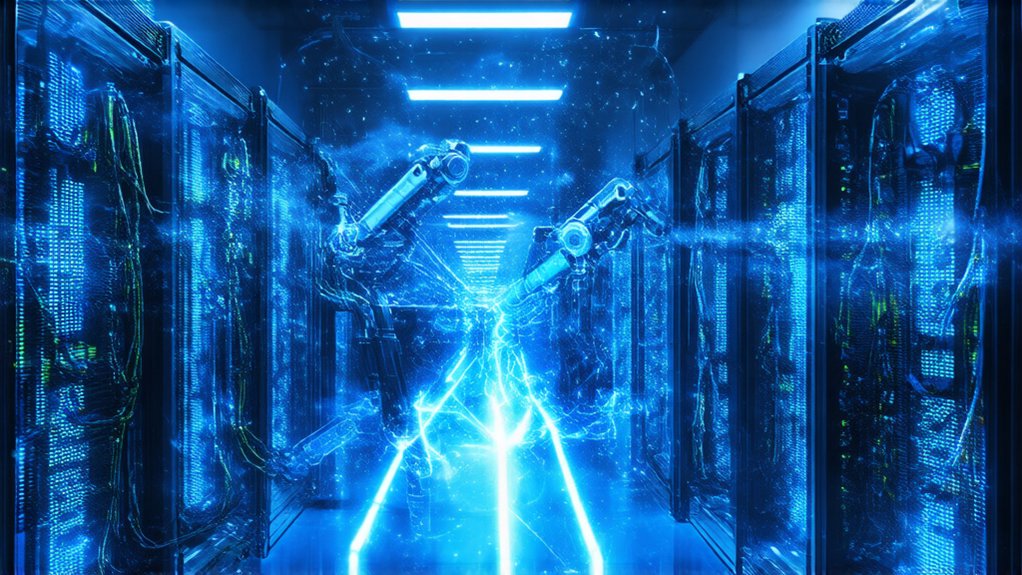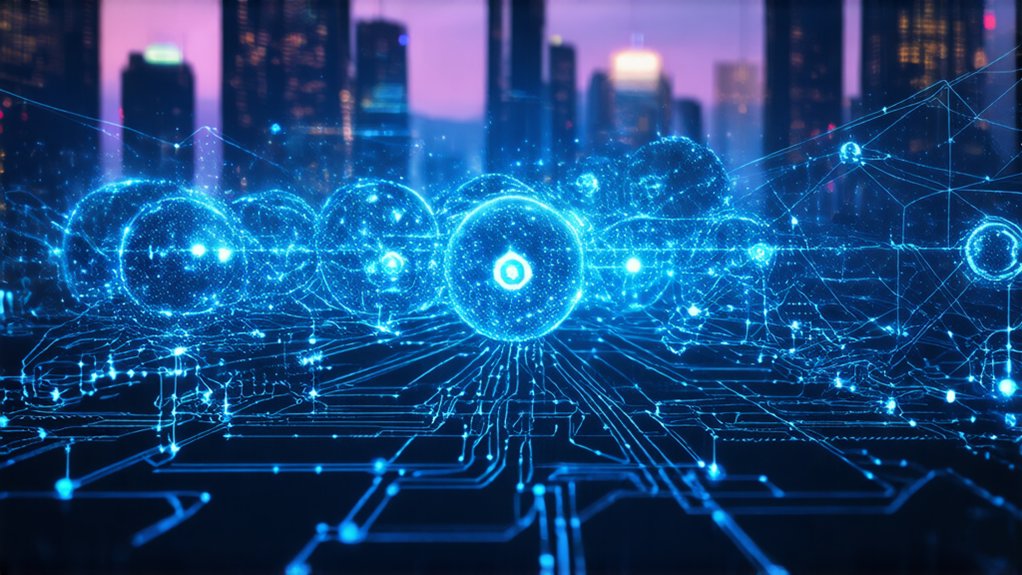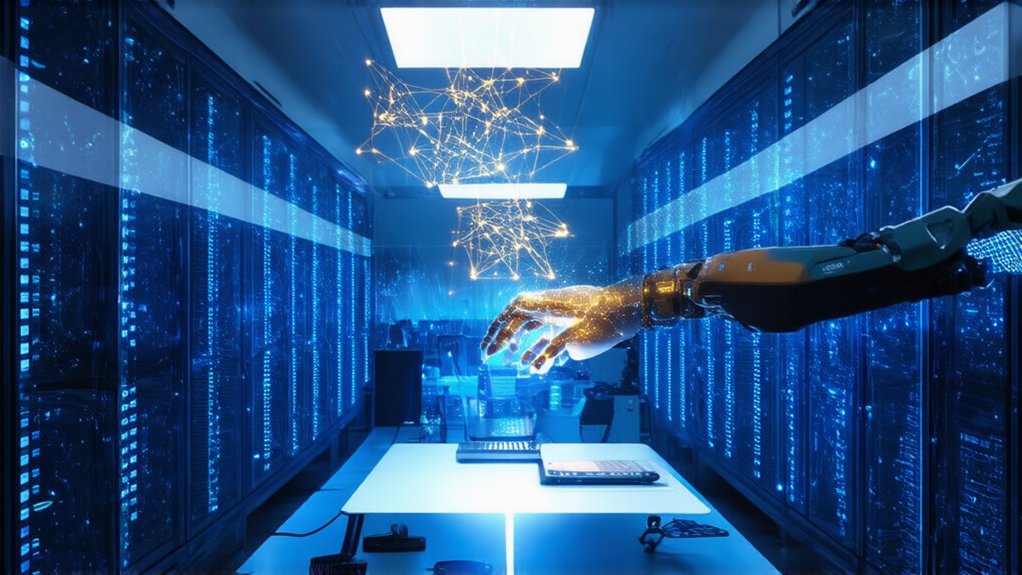Innovation moves fast. Especially in AI. Just look at what’s happening with generative models like DALL-E and Stable Diffusion—suddenly everyone’s an artist. Text to images, music, video. The works.
Google’s Gemini 2.0 is taking things further, creating AI that doesn’t just talk but acts. These GenAI apps are everywhere now. Unavoidable, really.
Science is getting a massive boost too. AlphaFold cracked protein folding, a problem that stumped scientists for decades. Just like that. AlphaProteo designs proteins from scratch. DeepMind’s GNoME found 380,000 stable materials overnight. Try doing that manually.
AI is spotting cancers earlier than doctors and accelerating research across fields. It’s not just helping scientists—it’s becoming one. Successful models require data cleaning steps to ensure reliable and unbiased results.
Autonomous systems are changing everything. Waymo and Tesla keep pushing self-driving tech forward. Drones deliver packages. Warehouse robots boost productivity by 40% while humans watch their jobs disappear.
Robots drive, deliver, and displace—all while we watch our relevance fade into automation’s shadow.
Manufacturing is next. Up to 70% of factory worker time could be automated. Progress, right?
Of course, these miracles need computing power. Lots of it. GPUs, TPUs, specialized chips—they’re the unsung heroes of AI. Also the villains of your electric bill. The heat these things generate is insane.
Future solutions like Quantum AI and neuromorphic chips sound promising, but who knows when they’ll actually work.
Data remains the Achilles’ heel. Garbage in, garbage out. AI needs massive amounts of quality data, and many organizations just don’t have it. So they’re turning to synthetic data instead.
Problem solved? Not exactly.
The ethical concerns are enormous. Biased data creates biased AI. Nobody can explain how the “black box” models really work. Privacy? Please.
And when AI screws up, who’s responsible? The developers? The users? The machine itself? Nobody seems to know. We need better frameworks and regulations, yesterday.
But hey, at least the robots are getting smarter. Edge AI technologies are bringing intelligence directly to devices, processing data locally to reduce latency and enhance privacy protection.
By 2034, AI is expected to become an integral part of our daily lives with the rise of no-code platforms that will allow even non-technical users to create custom AI solutions.




